Politics
Political violence kills almost 300 since Hasina’s fall: rights group

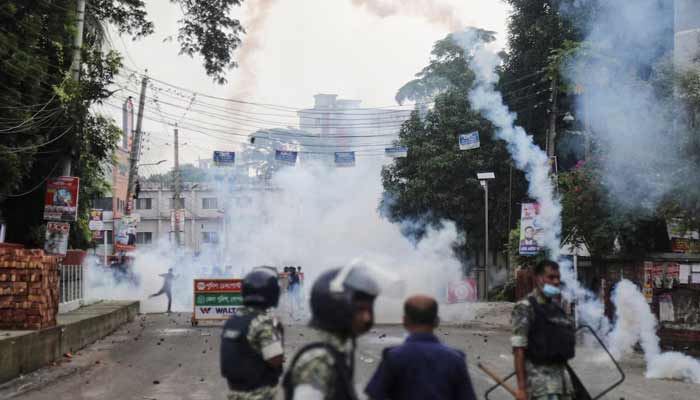
Nearly 300 people have been killed in political violence in Bangladesh in the year since student-led protests toppled autocratic former leader Sheikh Hasina, the country’s main human rights group said on Sunday.
A report by Odhikar, a Dhaka-based rights organisation, said at least 281 people had been killed in violence involving political parties from August 2024, when Hasina’s rule ended and she fled to India, to September 2025.
On top of those, there were another 40 victims of extrajudicial killings who had been suspected of crimes, while another 153 were lynched, the quarterly report released last week said.
Odhikar director ASM Nasiruddin Elan said adherence to human rights had improved since the fall of Hasina’s government but law enforcement agencies were still not being held accountable.
“Yes, we don’t see the frequent extrajudicial killings or enforced disappearances that we witnessed during the Hasina era, but deaths in custody, bribery, and harassment of victims are still ongoing,” Elan told AFP.
He said that “innocent people fall prey to atrocities” for their alleged involvement with the Awami League, Hasina’s political party that is now banned.
Hasina’s 15-year rule saw widespread human rights abuses, including the mass detention and extrajudicial killing of her political opponents.
Odhikar also said mob attacks had been relatively frequent during the period, mainly because of inefficient policing.
“Police have been used to achieve party interests and were given impunity, which eventually led them to kill and torture activists affiliated with the opposition,” the report said.
It said “the police largely became dysfunctional and lost their morale”, after Hasina fell.
Bangladesh’s interim government nor any of the political parties have responded yet to Odhikar’s report.
Politics
Iran’s deterrence power strengthened after ballistic missile upgrades: Top general
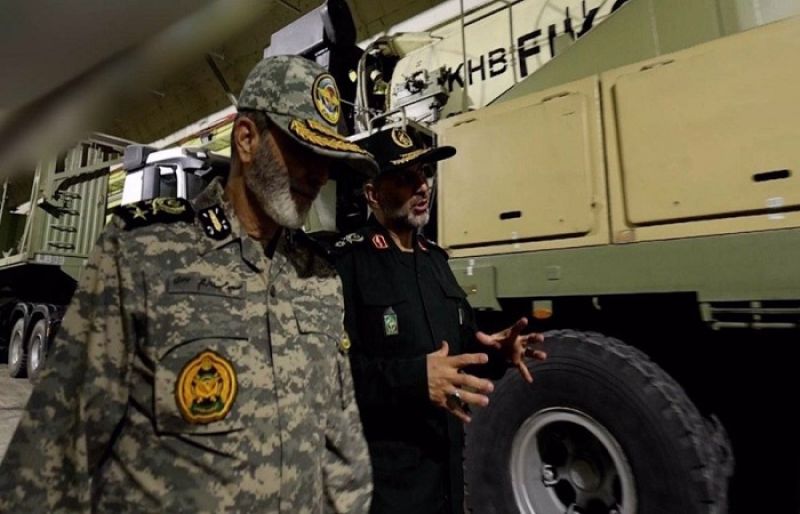

Iran’s top military official says the country has strengthened its deterrence by upgrading domestically manufactured ballistic missiles.
Chief of Staff of the Iranian Armed Forces Major General Abdolrahim Mousavi made the remarks on Wednesday during a visit to an Islamic Revolution Guards Corps (IRGC) missile town.
“By upgrading its ballistic missiles in all technical dimensions, Iran has been able to strengthen its deterrence power,” he said during the visit, accompanied by Brigadier General Majid Mousavi, commander of the IRGC Aerospace Force.
Mousavi also expressed Iran’s readiness to confront any act of aggression by its enemies.
“Following the 12-day war, we have changed our military doctrine from defensive to offensive by adopting the policy of asymmetric warfare and [boosting readiness for a] crushing response to the enemies,” the top general said.
He was referring to the illegal US-Israeli aggression against Iran that killed at least 1,064 people last June.
Israel launched the unprovoked war on June 13 while Iran was engaged in nuclear talks with the US, which also joined the aggression by striking Iranian nuclear sites.
In response, Iranian armed forces targeted strategic sites across the occupied territories and at Al-Udeid, the largest US military installation in West Asia.
Iran has since moved to enhance both its defensive and offensive capabilities.
The region is once again bracing for another potential military confrontation after the United States deployed air and naval forces to the region and threatened to attack the Islamic Republic.
Iranian officials have warned that any US attack would prompt an immediate response and could ignite a regional war.
Tensions have eased slightly as regional countries launched a flurry of diplomatic efforts to prevent war. Iranian and US diplomats are now set to meet in Oman on Friday for a new round of talks on Tehran’s nuclear program.
Earlier this week, General Mousavi warned that any miscalculation by the Islamic Republic’s enemies would trigger a “rapid” and “decisive” response.
Iranian Armed Forces are prepared to respond forcefully to threats, he added. “We think only of victory. We have no fear of the enemy’s superficial might, and we are fully ready for confrontation and to deliver a retaliatory slap.”
Politics
India investigates suspected suicide of three sisters ‘influenced’ by K-Pop music
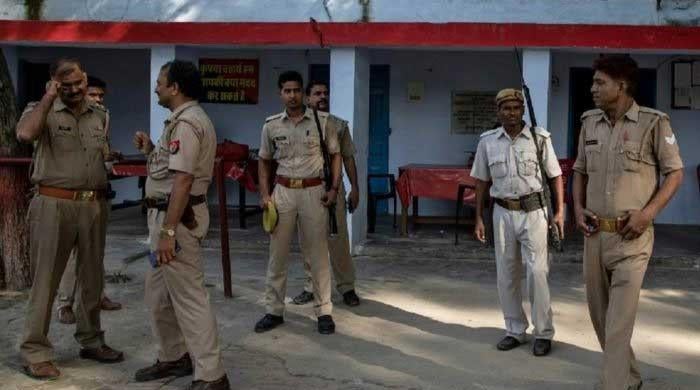
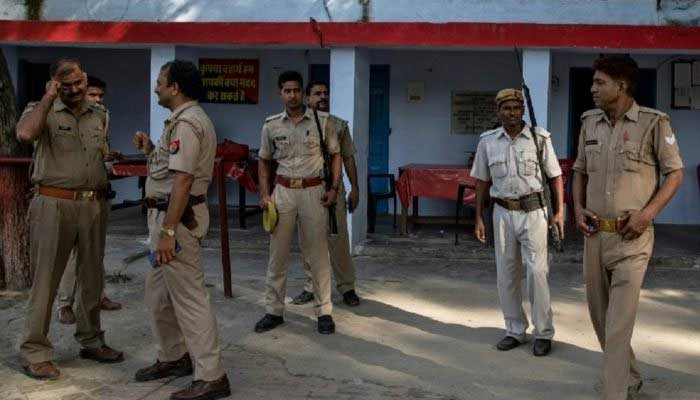
NEW DEHI: Indian police said on Thursday an investigation had been launched into the suspected suicide of three young sisters over concerns that they were heavily “influenced” by games and movies online that they were later denied access to.
Local media reported the sisters, aged 12, 14 and 16 had jumped from their home on Wednesday in the city of Ghaziabad on the outskirts of the country’s capital.
Concern among experts and regulators has grown in recent years that too much screen time and addictive algorithms are harming child development, sparking authorities, including in India, to push for social media bans for children and teens.
“(An) investigation is underway based on the suicide note and their phones,” Nimish Patil, a senior police official, told AFP on Thursday.
Police in India routinely investigate the factors leading up to suspected suicides.
The sisters had been “denied access” to K-Pop music and Korean games and movies that they had previously played and watched online.
“They were influenced by Korean culture: K-pop music, games and movies,” Patil said.
He added that the family also appeared to be under financial distress.
Their father had recently taken away their devices and barred them from watching Korean dramas and playing online games, the Indian Express newspaper reported. AFP could not immediately reach family members for comment.
Korean culture has surged in popularity, especially among young people, in India over the past decades, beginning with rapper Psy’s 2012 hit “Gangnam Style” and expanding through K-Pop and streaming platforms packed with Korean dramas.
The case has sparked debate in India with intense media coverage highlighting concerns about young people’s skyrocketing online exposure deepening mental health vulnerabilities.
Two Indian states recently said they were preparing the ground for banning children from using social media.
Internationally, governments have been exploring social media restrictions for children and teenageers, led by Australia, which banned the networks for under-16s in December.
French lawmakers in the country’s lower house last month passed a bill that if confirmed by its Senate will ban social media use by under-15s and bar mobile phones from high schools.
Politics
‘New Start’ nuclear treaty expires, removing key constraints on Russia and US
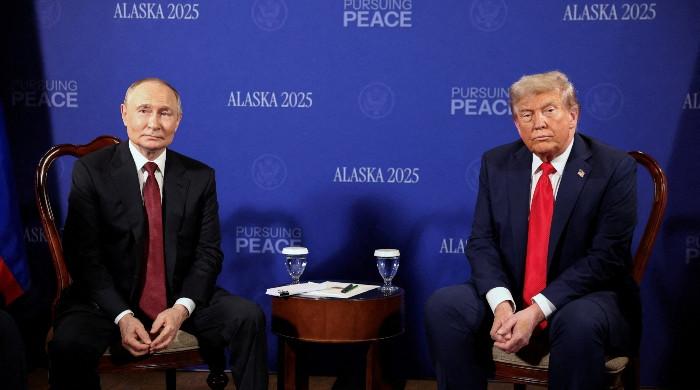
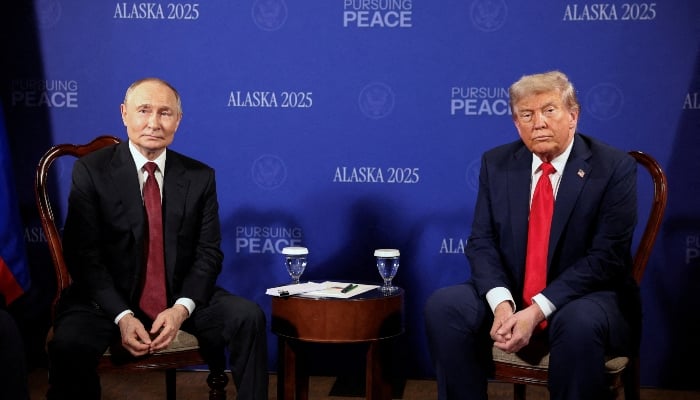
- Lapse of New Start treaty ends half-century of nuclear restraint.
- Russia criticises US for not agreeing to extend warhead limits.
- Moscow says neither side is bound any more by treaty provisions.
MOSCOW: Russia and the United States are no longer bound by any limits on the size of their strategic nuclear arsenals after their last arms control treaty expired on Thursday with no agreement between them on what should come next.
The New Start treaty, which set limits on each side’s missiles, launchers and strategic warheads, was the last in a series of nuclear agreements stretching back more than half a century to the depths of the Cold War.
Security experts say its expiry risks ushering in a new arms race that will also be fuelled by China’s rapid nuclear build-up.
Russian President Vladimir Putin had proposed that Moscow and Washington agree to adhere to the treaty’s key provisions for one more year, but US President Donald Trump did not make any formal response.
Trump says he wants a better deal that will also bring in China. But Beijing refuses to negotiate with the other two countries because it has only a fraction of their warhead numbers – an estimated 600, compared to around 4,000 each for Russia and the US
In a statement late on Wednesday, hours before New Start lapsed, Russia criticised what it called the “mistaken and regrettable” US approach.
It said Moscow’s assumption now was that the treaty no longer applied, and both sides were free to choose their next steps.
Russia “remains prepared to take decisive military-technical countermeasures to mitigate potential additional threats to national security”.
But it will act responsibly and is open to diplomacy to seek a “comprehensive stabilisation of the strategic situation,” the statement said, striking a balance between assertiveness and restraint.
Trump made no statement as the treaty expired. The White House said this week that Trump would decide the way forward on nuclear arms control, which he would “clarify on his own timeline”.
UN chief says nuclear risk is highest in decades
Strategic nuclear weapons are the long-range systems that each side would use to strike the other’s capital, military and industrial centres in the event of a nuclear war.
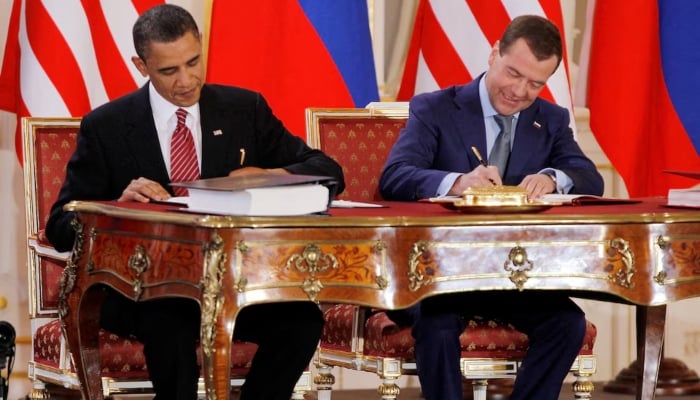
They differ from so-called tactical nuclear weapons that have a lower yield and are designed for limited strikes or battlefield use.
In the absence of a treaty framework that provides stability and predictability, analysts say each side will find it harder to read the other’s intentions. That could lead to a spiral in which each feels the need to keep on adding weapons, based on worst-case assumptions about what the other is planning.
Within a couple of years, each could deploy hundreds more warheads beyond the New Start limit of 1,550, experts say.
“Transparency and predictability are among the more intangible benefits of arms control and underpin deterrence and strategic stability,” said Karim Haggag, director of the Stockholm International Peace Research Institute.
“Without them, relations between nuclear weapon states are likely to be more crisis prone – especially with artificial intelligence and other new technologies adding complexity and unpredictability to escalation dynamics and a worrying lack of diplomatic and military communication channels between the USA and both China and Russia.”
UN Secretary-General Antonio Guterres said the dissolution of decades of achievement in arms control “could not come at a worse time – the risk of a nuclear weapon being used is the highest in decades.”
He urged Russia and the US to resume negotiations without delay to agree “a successor framework that restores verifiable limits, reduces risks, and strengthens our common security”.
-

 Entertainment1 week ago
Entertainment1 week agoClaire Danes reveals how she reacted to pregnancy at 44
-

 Sports1 week ago
Sports1 week agoCollege football’s top 100 games of the 2025 season
-

 Politics1 week ago
Politics1 week agoTrump vows to ‘de-escalate’ after Minneapolis shootings
-

 Sports1 week ago
Sports1 week agoTammy Abraham joins Aston Villa 1 day after Besiktas transfer
-

 Business1 week ago
Business1 week agoPSX witnesses 6,000-point on Middle East tensions | The Express Tribune
-

 Entertainment1 week ago
Entertainment1 week agoK-Pop star Rosé to appear in special podcast before Grammy’s
-

 Tech1 week ago
Tech1 week agoThe Surface Laptop Is $400 Off
-

 Business1 week ago
Business1 week agoGM expects to top Ford in U.S. vehicle production as it faces up to $4 billion in tariff costs






